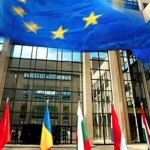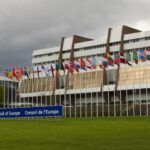The Commission calls on EU Member States to take coordinated action to further restrict travel from India on a temporary basis, with a view to limiting the spread of the B.1.617.2 variant first detected in India. This follows a proposal of the World Health Organisation on 10 May 2021 to change the classification of that variant from “variant of interest” to “variant of concern”. It is important to limit to the strict minimum the categories of travellers that can travel from India for essential reasons and to subject those who may still travel from India to strict testing and quarantine arrangements.
To ensure a fully coordinated and efficient response to this variant and taking into account the deteriorating health situation in India, the Commission proposes that Member States apply an ‘emergency brake’ on non-essential travel from India. On 3 May, the Commission had proposed to add an ‘emergency brake mechanism’ to the Council recommendation on restrictions to non-essential travel.
Limited exemptions for those travelling for compelling reasons, subject to strict safeguards
The restrictions should not affect those travelling for compelling reasons such as for imperative family reasons or persons in need of international protection or for other humanitarian reasons. EU citizens and long-term residents, as well as their family members, should still be able to travel to Europe.
For those travellers, the Commission calls on Member States to apply additional health-related measures such as strict testing and quarantine arrangements. These measures should apply regardless of whether the travellers have been vaccinated.
Next steps
Any restrictions on essential travel from India should be temporary and regularly reviewed. Member States should assess their effectiveness in containing the new variant. When triggering the ‘emergency brake’ mechanism to further restrict travel from a non-EU country, the Member States meeting within the Council structures should review the situation together in a coordinated manner and in close cooperation with the Commission.
Background
A temporary restriction on non-essential travel to the EU is currently in place from many non-EU countries, including from India, based on a recommendation agreed by the Council.
Following a proposal by the Commission, the Council agreed on 2 February 2021 additional safeguards and restrictions for international travellers into the EU, aimed at ensuring that essential travel to the EU continues safely in the context of the emergence of new coronavirus variants and the volatile health situation worldwide.
On 3 May, the Commission proposed that Member States ease the current restrictions on non-essential travel into the EU to take into account the progress of vaccination campaigns and developments in the epidemiological situation worldwide while putting in place a new ‘emergency brake mechanism’, to address coronavirus variants. The ‘emergency brake mechanism’ is a coordination mechanism intended to limit the risk of variants of interest and variants of concern entering the EU. It allows Member States to act quickly and in a coordinated manner to temporarily limit to a strict minimum all travel from a non-EU country where the epidemiological situation worsens quickly and in particular where a variant of concern or interest is detected.
Variants of interest and variants of concern are assessed as such by the World Health Organisation (WHO) and for the EU by the European Centre for Disease Prevention and Control (ECDC) based on key properties of the virus such as transmission, severity and ability to escape immune response.
The European Centre for Disease Prevention and Control has assessed the B.1.617.2 variant first detected in India as a variant of interest and keeps this assessment under constant review. Variants of interest are variants that show increased transmissibility and severity. On 10 May 2021, the World Health Organisation proposed to change the classification of the B.1.617.2 variant from “variant of interest” to “variant of concern”.
Under the current Council Recommendation on the temporary restriction on non-essential travel into the EU, Member States can temporarily limit the categories of essential travellers that can travel to the EU where the epidemiological situation worsens quickly and where a high incidence of variants of concern of the virus is detected.
The Council recommendation covers all Member States (except Ireland), as well as the 4 non-EU states that have joined the Schengen area: Iceland, Liechtenstein, Norway and Switzerland. For the purpose of the travel restriction, these countries are covered in a similar way as the Member States.







Leave a Reply